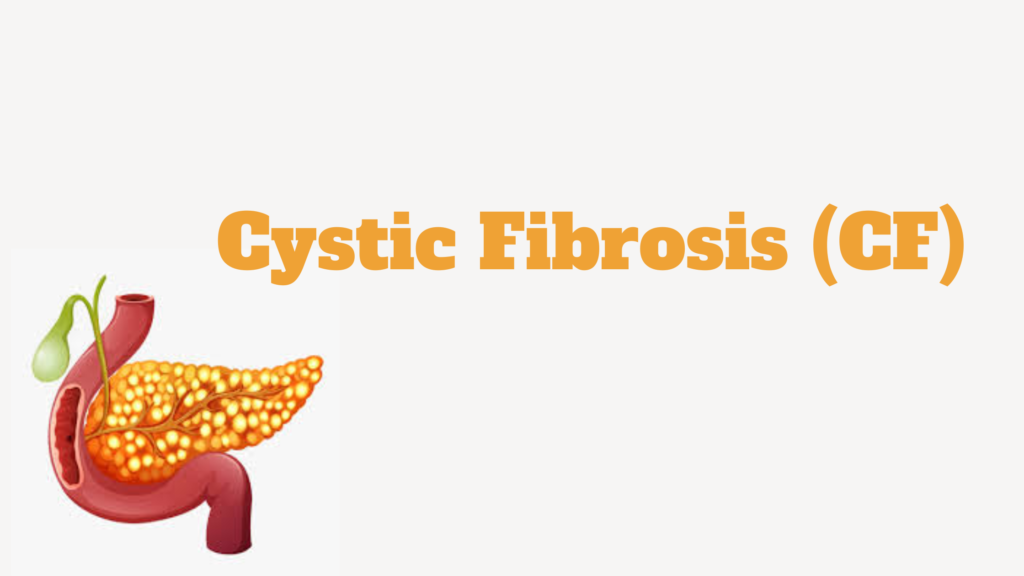
Cystic Fibrosis (CF) is a genetic disorder that primarily affects the lungs and digestive system due to the production of thick, sticky mucus. This mucus obstructs airways and ducts, leading to respiratory and nutritional challenges.
🧬 Causes
CF is caused by mutations in the CFTR gene, leading to defective chloride channels. This results in thickened mucus in various organs. The condition is inherited in an autosomal recessive pattern, meaning both parents must carry a copy of the mutated gene for a child to be affected .
🩺 Symptoms
- Respiratory: Chronic cough, wheezing, frequent lung infections, and difficulty breathing.
- Digestive: Poor growth, difficulty gaining weight, greasy stools, and constipation.
- Other: Salty-tasting skin, male infertility, and potential liver disease .
🧪 Diagnosis
CF is often diagnosed through:
- Newborn Screening: Blood tests shortly after birth.
- Sweat Test: Measures salt levels in sweat.
- Genetic Testing: Identifies CFTR gene mutations.
- Chest X-rays and Pulmonary Function Tests: Assess lung health .
💊 Treatment
While there’s no cure, treatments aim to manage symptoms and improve quality of life:
- CFTR Modulators: Medications like Trikafta (elexacaftor, ivacaftor, and tezacaftor) help correct CFTR protein defects in certain mutations .
- Airway Clearance Techniques: Methods like chest physiotherapy and mechanical vests to loosen mucus.
- Medications: Antibiotics for infections, bronchodilators to open airways, and enzyme replacements for digestion .
- Nutritional Support: High-calorie diets and vitamin supplements to address malabsorption.
🌍 Global Perspective
CF is most prevalent among individuals of European descent, with an incidence of about 1 in 3,200 births. In regions like Ireland, it has the highest incidence globally .
